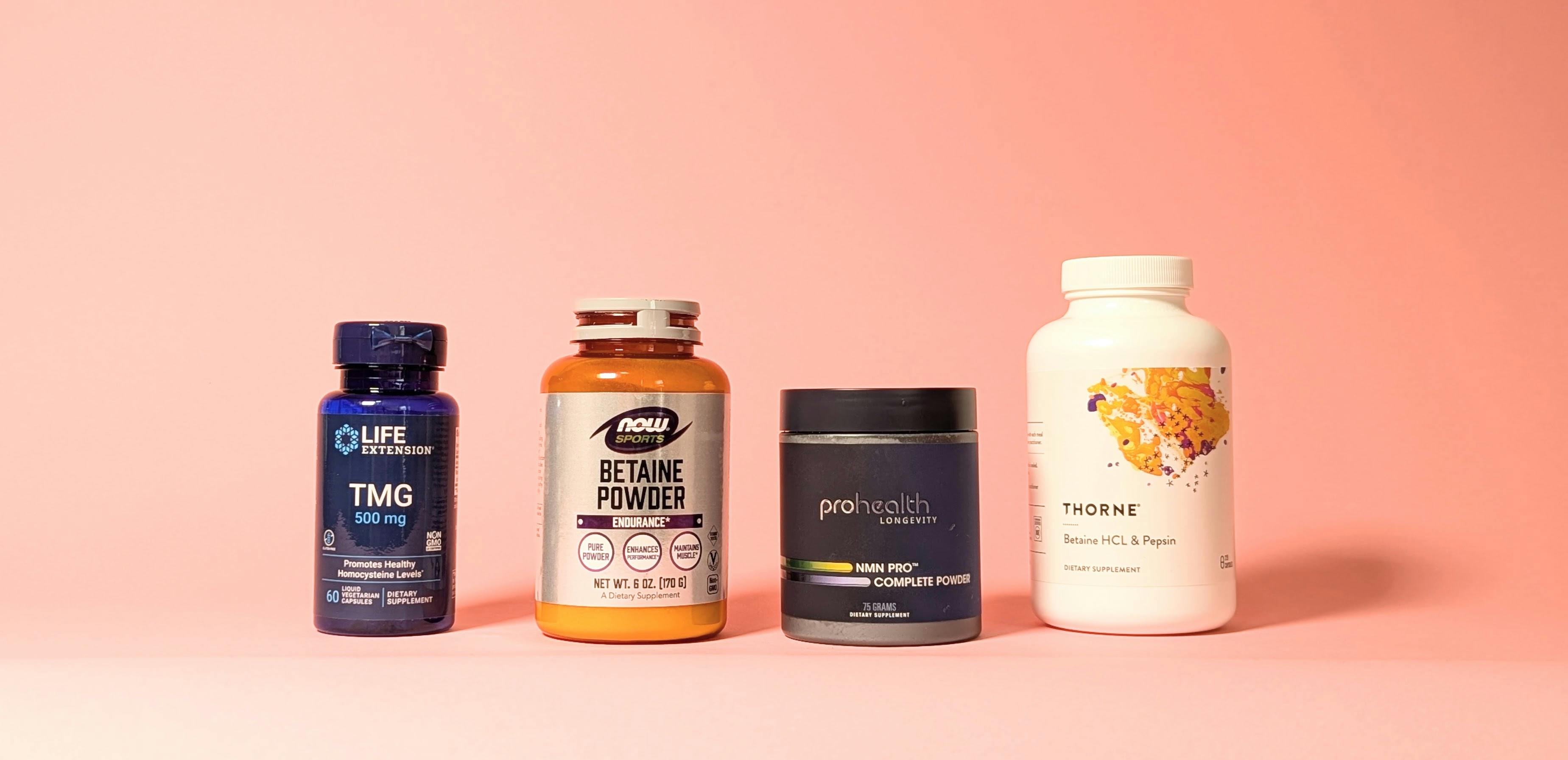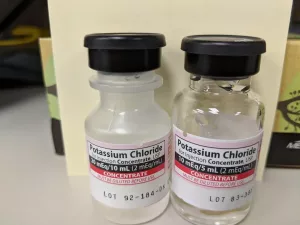TMG supplements might support cardiovascular health, enhance athletic performance, and help regulate insulin. Daily intakes up to 15 grams have been used without major problems for some people, though digestive side effects such as diarrhea and vomiting can occur.
Trimethylglycine (TMG), also called betaine or betaine anhydrous, is an anti-inflammatory and antioxidant molecule that the body can synthesize on its own.
It occurs naturally in foods like beetroot and is sold as a dietary supplement.
Chemically, TMG is glycine with three attached methyl groups. It participates in methylation reactions, a process vital for DNA synthesis.
Be aware that TMG can cause adverse effects, particularly at high doses.
This article reviews the potential advantages, side effects, recommended intake, and dietary sources of TMG.
Potential benefits
Supplementing with TMG has been linked to several possible health advantages.
May reduce homocysteine to support heart health
Some research indicates TMG can help convert homocysteine, an amino acid, into methionine. This is important because elevated homocysteine is associated with increased cardiovascular risk.
One trial reported that taking up to 4 grams of TMG daily lowered homocysteine without adversely affecting other markers of cardiac health, such as blood pressure and triglycerides.
However, other studies have suggested TMG supplementation might raise total and LDL (“bad”) cholesterol, both recognized heart disease risk factors.
Overall, additional research is required to clarify how TMG influences heart disease risk.
Could enhance athletic performance
TMG is often used by athletes aiming to improve exercise performance.
A study of 29 soccer players found that consuming 2 g of TMG daily for 14 weeks improved muscular strength, sprint speed, and repeated-sprint ability.
Although the exact pathways are uncertain, investigators have proposed that TMG might:
- decrease perceived fatigue
- promote protein synthesis
- support creatine production, a molecule that supplies energy to muscle cells
Despite promising findings, the evidence is inconsistent.
A review of seven trials found only two reported benefits of TMG for muscle strength and power.
Likewise, another study observed no meaningful impact of TMG on CrossFit performance.
Thus, more robust trials are needed before broadly recommending TMG for athletic enhancement.
May reduce insulin resistance
Several investigations suggest TMG may improve insulin sensitivity, a condition in which the body’s ability to use insulin to control blood sugar is impaired.
A population study of nearly 2,400 participants linked higher dietary choline and betaine intake with lower insulin resistance.
Additionally, in an animal study, giving TMG to mice fed a high-fat diet improved lipid metabolism and reduced insulin resistance.
Nevertheless, further human research is necessary to determine TMG’s effects on insulin resistance in people.
Could augment antidepressant effects
Some evidence shows TMG may boost the effectiveness of certain antidepressant treatments.
Specifically, TMG appears to enhance the action of S-adenosyl-methionine (SAMe), a supplement used to treat mild to moderate depression.
In a trial involving 64 adults with depression, participants who took both SAMe and TMG for 12 months showed greater symptom improvement than those taking SAMe alone.
Moreover, TMG supplementation might help alleviate symptoms of depression and anxiety, conditions that have been linked to elevated homocysteine levels which TMG could lower.
Potential side effects
The most frequently reported side effects of TMG are gastrointestinal, including:
- diarrhea
- indigestion
- bloating
- cramping
- nausea
- vomiting
These adverse effects are more likely with larger doses of the supplement.
Rarely, TMG can markedly elevate blood methionine levels, which in extreme cases might lead to fluid accumulation around the brain.
If you notice any negative reactions after taking TMG, stop use and consult a healthcare professional.
TMG supplements are not advised for children or for people who are pregnant or breastfeeding, since safety and long-term outcomes have not been well-studied in these groups.
Dosage
There are no universally accepted dosing guidelines for TMG, but most commercial formulations provide between 750 and 3,000 milligrams per serving.
TMG has been used safely at doses up to 15 grams in some reports.
Clinical trials investigating TMG’s benefits in humans typically employed doses of a few grams per day, often split into multiple smaller doses.
If you have health>TMG supplements might support cardiovascular health, enhance athletic performance, and help regulate insulin. Daily intakes up to 15 grams have been used without major problems for some people, though digestive side effects such as diarrhea and vomiting can occur.
Trimethylglycine (TMG), also called betaine or betaine anhydrous, is an anti-inflammatory and antioxidant molecule that the body can synthesize on its own.
It occurs naturally in foods like beetroot and is sold as a dietary supplement.
Chemically, TMG is glycine with three attached methyl groups. It participates in methylation reactions, a process vital for DNA synthesis.
Be aware that TMG can cause adverse effects, particularly at high doses.
This article reviews the potential advantages, side effects, recommended intake, and dietary sources of TMG.
Potential benefits
Supplementing with TMG has been linked to several possible health advantages.
May reduce homocysteine to support heart health
Some research indicates TMG can help convert homocysteine, an amino acid, into methionine. This is important because elevated homocysteine is associated with increased cardiovascular risk.
One trial reported that taking up to 4 grams of TMG daily lowered homocysteine without adversely affecting other markers of cardiac health, such as blood pressure and triglycerides.
However, other studies have suggested TMG supplementation might raise total and LDL (“bad”) cholesterol, both recognized heart disease risk factors.
Overall, additional research is required to clarify how TMG influences heart disease risk.
Could enhance athletic performance
TMG is often used by athletes aiming to improve exercise performance.
A study of 29 soccer players found that consuming 2 g of TMG daily for 14 weeks improved muscular strength, sprint speed, and repeated-sprint ability.
Although the exact pathways are uncertain, investigators have proposed that TMG might:
- decrease perceived fatigue
- promote protein synthesis
- support creatine production, a molecule that supplies energy to muscle cells

Despite promising findings, the evidence is inconsistent.
A review of seven trials found only two reported benefits of TMG for muscle strength and power.
Likewise, another study observed no meaningful impact of TMG on CrossFit performance.
Thus, more robust trials are needed before broadly recommending TMG for athletic enhancement.
May reduce insulin resistance
Several investigations suggest TMG may improve insulin sensitivity, a condition in which the body’s ability to use insulin to control blood sugar is impaired.
A population study of nearly 2,400 participants linked higher dietary choline and betaine intake with lower insulin resistance.
Additionally, in an animal study, giving TMG to mice fed a high-fat diet improved lipid metabolism and reduced insulin resistance.
Nevertheless, further human research is necessary to determine TMG’s effects on insulin resistance in people.
Could augment antidepressant effects
Some evidence shows TMG may boost the effectiveness of certain antidepressant treatments.
Specifically, TMG appears to enhance the action of S-adenosyl-methionine (SAMe), a supplement used to treat mild to moderate depression.
In a trial involving 64 adults with depression, participants who took both SAMe and TMG for 12 months showed greater symptom improvement than those taking SAMe alone.
Moreover, TMG supplementation might help alleviate symptoms of depression and anxiety, conditions that have been linked to elevated homocysteine levels which TMG could lower.
Potential side effects
The most frequently reported side effects of TMG are gastrointestinal, including:
- diarrhea
- indigestion
- bloating
- cramping
- nausea
- vomiting
These adverse effects are more likely with larger doses of the supplement.
Rarely, TMG can markedly elevate blood methionine levels, which in extreme cases might lead to fluid accumulation around the brain.
If you notice any negative reactions after taking TMG, stop use and consult a healthcare professional.
TMG supplements are not advised for children or for people who are pregnant or breastfeeding, since safety and long-term outcomes have not been well-studied in these groups.
Dosage
There are no universally accepted dosing guidelines for TMG, but most commercial formulations provide between 750 and 3,000 milligrams per serving.
TMG has been used safely at doses up to 15 grams in some reports.
Clinical trials investigating TMG’s benefits in humans typically employed doses of a few grams per day, often split into multiple smaller doses.
If you have health conditions or take medications, check with a clinician before beginning TMG and follow product directions.
Other ways to increase your intake
TMG is present in various foods, so dietary changes can raise your intake.
Below are TMG amounts in a 3.5-ounce (100-gram) portion of several foods, based on research:
- Wheat bran: 1,339 mg
- Wheat germ: 1,241 mg
- Spinach: 600 to 645 mg
- Quinoa: 390 mg
- Beets: 114 to 297 mg
- Shrimp: 219 mg
- Wheat bread: 201 mg
Various factors influence TMG content in foods. For example, certain cooking techniques—especially boiling—can greatly reduce TMG levels.
Frequently asked questions
What are TMG supplements used for?
They’re used to potentially support heart health, athletic performance, insulin sensitivity, and to augment some antidepressant treatments.
Is TMG anti-inflammatory?
Some evidence indicates TMG possesses anti-inflammatory properties.
Does TMG affect sleep?
Limited research suggests low TMG levels may be linked with poorer sleep quality, but more study is needed to clarify any relationship between TMG supplementation and sleep.
Should you take TMG in the morning or night?
There is no firm guidance to take TMG specifically at morning or bedtime. Some studies used divided dosing, so taking it both morning and evening may be beneficial for certain uses.
Takeaway
TMG is a naturally produced compound present in some foods and available as a supplement.
While more research is necessary, animal and human studies suggest it may have antioxidant and anti-inflammatory effects and offer several potential benefits.
Consult a healthcare provider before using TMG supplements if you have conditions like heart disease, depression, or insulin resistance. Further research is required to confirm many of the proposed benefits.

























Leave a Reply
You must be logged in to post a comment.